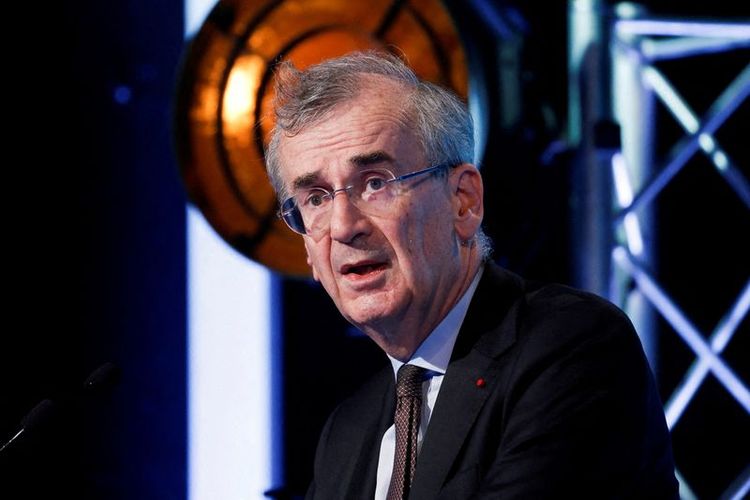French central bank head warns against raising ECB inflation target

In AIX-EN-PROVENCE, France, the governor of France's central bank, Francois Villeroy de Galhau, defended his stance on Sunday, disagreeing with a proposal put forward by certain French economists to increase the European Central Bank's (ECB) inflation objective of 2%.
Villeroy, a member of the governing council of the ECB, additionally mentioned that the maximum level of interest rate hikes is nearing its end. He further indicated that the rates would be maintained at high levels for a significant period to allow their effects to have a lasting influence on the economy.
Villeroy, speaking at an economics conference held in the beautiful southern city of Aix-en-Provence in France, expressed the objective of reducing inflation to the desired target of 2% by the year 2025.
Olivier Blanchard, a French economist who used to work for the IMF, has always advocated for a greater inflation goal than the commonly accepted 2% target by major central banks. He believes that the benefits of having more flexibility in this regard would far outweigh any drawbacks.
Experienced French economist Patrick Artus also advocated for a increased objective during the conference held on Saturday, while French Finance Minister Bruno Le Maire stated that if economists were initiating the discussion, there should be "no limits when it comes to pushing boundaries".
Villeroy retorted by stating that an elevated inflation objective was an erroneous notion, as it would result in increased instead of reduced interest rates.
According to Villeroy, in the event of us declaring that our goal for inflation has shifted from 2% to 3%, lenders would promptly require increased interest rates, expecting a minimum of 1% hike, due to the anticipation of elevated inflation and unpredictability.
In the blog post, Bank of England's Chief Andrew Bailey expressed that the 2% objective is well-adjusted as it strikes a fine equilibrium. The target is set at a level where individuals need not factor in inflation when making routine economic choices. On the other hand, lowering the target to zero would hinder the flexibility required for relative price adjustments.
"If we alter it, we will unravel not just that explanation, we will unravel anticipations," he stated.
Leigh Thomas reported on the topic, with additional information provided by William Schomberg in London. The editing was performed by Elaine Hardcastle and Alexander Smith.



















































